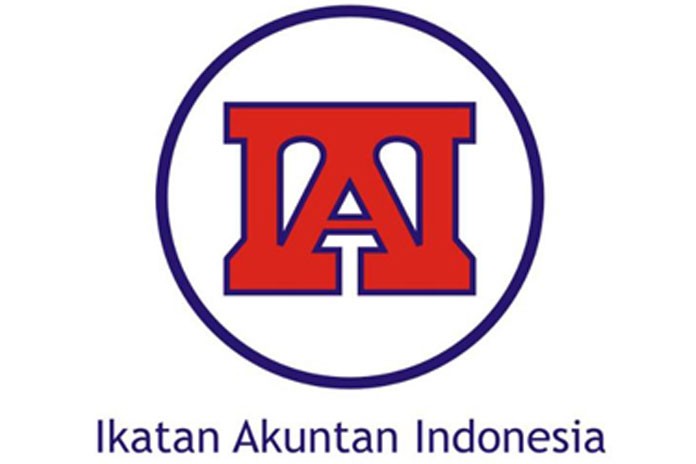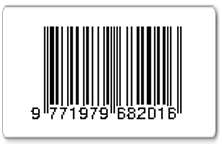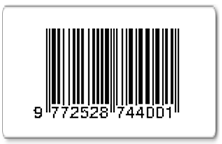PEMANFAATAN SISTEM INFORMASI AKUNTANSI PADA USAHA MIKRO, KECIL, DAN MENENGAH (UMKM) SEKTOR JASA PERDAGANGAN DI PADANG, SUMATERA BARAT
Abstract
Abstract
The literature has shown that access to finance and capital is one of the major problems hindering the development ofMicro, Small, and Medium-sized Enterprises (MSMEs). Poor quality of financial records is perceived as a source of MSMEs' lack access to banking credit. MSMEs owners and managers often lack the skills and knowledge needed to apply for a loan and meet bank standards.This study aims to investigate the status of accounting system in the MSMEs in the trading sector in Padang City, West Sumatera. To achieve this aim, this research developed structural questioners, which then randomly distributed them into 100 owners, managements and employees of trading MSMEs in four largest traditional markets in Padang. This study found that most of the MSMEs owners and managements have acknowledged the importance of financial managementthrougha good accounting information system for their business and haveapplied it with various quality of financial records, ranging from very simple bookkeeping records to those completely fulfilled the formal accounting standard. Nevertheless, this study shows that lack of qualified accounting personnel and financial management facilities caused by a lack capital and financial resources are some key obstacles for implementing a good accounting system in MSMEs.
Keywords: Accounting Information System; Access to Finance; Financial Management;Micro, Small, and Medium Enterprises.
Abstrak
Literatur telah menunjukkan bahwa akses ke keuangan dan modal adalah salah satu masalah utama yang menghambat perkembangan Usaha Mikro, Kecil, dan Menengah (UMKM). Buruknya kualitas catatan keuangan dianggap sebagai sumber kurangnya akses kredit perbankan. Pemilik dan manajer UMKM sering kekurangan keterampilan dan pengetahuan yang dibutuhkan untuk mengajukan pinjaman dan memenuhi standar bank. Penelitian ini bertujuan untuk menyelidiki status sistem akuntansi di UMKM di sektor perdagangan di Kota Padang, Sumatera Barat. Untuk mencapai tujuan ini, penelitian ini mengembangkan kuesioner struktural, yang kemudian secara acak mendistribusikannya ke dalam 100 pemilik, manajemen dan karyawan perdagangan UMKM di empat pasar tradisional terbesar di Padang. Studi ini menemukan bahwa sebagian besar pemilik dan manajemen UMKM telah mengakui pentingnya manajemen keuangan melalui sistem informasi akuntansi yang baik untuk bisnis mereka dan telah menerapkannya dengan berbagai kualitas catatan keuangan, mulai dari catatan pembukuan yang sangat sederhana sampai yang sepenuhnya memenuhi standar akuntansi formal. Namun demikian, penelitian ini menunjukkan bahwa kurangnya personil akuntansi yang memenuhi syarat dan fasilitas manajemen keuangan yang disebabkan oleh kurangnya sumber daya modal dan keuangan adalah beberapa hambatan utama untuk menerapkan sistem akuntansi yang baik di UMKM.
Kata Kunci: Sistem Informasi Akuntansi; Akses ke Keuangan; Manajemen Keuangan, Usaha Mikro, Kecil, dan Menengah.
Full Text:
PDFReferences
Abd-alghani, D. and Ameen, K.M. 2005. “Financial Performance from Financial Simulation’s Perspective.” International Scientific Conference about the Significant Performance of the Government and the Organizations, University of Wargla, Algeria.
Alexander, D. and Nobes, C. 2004. Financial Accounting: an International introduction, second edition, Prentice Hall, Pearson education,
Asian Development Bank, ADB. (2013). “Asia SME Finance Monitor 2013”. ADB, Manila.
Berryman, J. 1983. "Small Business Failure and Bankruptcy: A Survey of the Literature," European Small Business Journal, 1(4), pp. 47-59.
Briciu, S. dan Groza, C. (2009). “IFRS will support management accounting system for Small and Medium Enterprise (SME)?”, Annales Universitatis Apulensis Series Oeconomica, 11(1), research gate. available from sorin briciu, retrieved on 23 juli 2015.
Gorton, M. 1999. "Use of Financial Management Techniques in the U.K.-Based Small and Medium Enterprises: Empirical Research Findings," Journal of Financial Management and Analysis, 12(1), pp. 56-64.
Gelinass, U.J., and Dull, R. 2009. Accounting Information Systems, 8th Edition, South-Western, a part of Cengage Learning.
Hall, G.andYoung, B. 1993. "Factors Associated with Small Firm Insolvency," inAtkin,R.,Chell,E. and Mason, C. (eds.) New Directions in Small Business Research, Avebury; Aldersh.
International Finance Cooperation, IFC. 2006. “Access to Credit for Businesswomen in Indonesia”.IFC-Pensa, World Bank, Indonesia.
Iriayanti, M. and Azis, M. 2012,“ Barrier Factors and Potential Solutions for Indonesian SMEs.” Procedia Economics and Finance 4, pp. 3-12.
McMahon, G.P. and Holmes, S. 1991. "Small Business Financial Managemen Practices in North America: A Literature Review", Journal of Small Business Management, April, 29(2), pp. 19-30.
McMahon, G.P. 2001. "Business Growth and Performance and the Financial Reporting Practices of Australian Manufacturing SMEs," Journal of Small Business Management, 39(2), pp. 152-164.
Mitchell, F., Reid, G., and Smith, J. 2000.Information system development in the small firm: The use of management accounting. CIMAPublishing.
Mourougane, A. (2012), “Promoting SME Development in Indonesia.” OECD Economics Department Working Papers No. 995.
Peacock, R.W. 1985. "The Small Business Finance Function." The Australian Accountant, 55(1), pp. 42-48.
Reid, G. and Smith, J. 2002. "The Bigger Picture." Financial Management, Chartered Institute of Management Accountants, pp. 24-26.
Romney, M.B dan Steinbart, P.J. 2008. “Accounting Information Systems”, Prentice Hall Business Publishing, 11 Edition.
Shinozaki, S. (2012), “A New Regime of SME Finance in Emerging Asia: Empowering Growth-Oriented SMEs to Build Resilient National Economies.” ADB Working Paper Series on Regional Economic Integration No. 104.
Smith, J. 1999. "Information Technology in the Small Business: Establishing the Basis for a Management Information System." Journal of Small Business and Enterprise Development, 6(4), pp. 326-340.
Smirat,B. Y. 2009. “The Financial and Administrative Problems Facing the Small Enterprises in South.” Derast,University of Jordan,Vol 36 NO 2,pp369-414.
Smirat, B. Y. 2013. “The Use of Accounting Information by Small and Medium Enterprises in South District of Jordan, (An empirical study).” Research Journal of Finance and Acounting, Vol.4, No. 6.
Son, D.D., Marriot, N. dan Marriot, P. (2006). “Users’ perceptions and uses of financial reports of small and medium companies intransitional economies: Qualitative evidence from Vietnam.“Qualitative Research in Accounting & Management, 3(30), pp. 218 – 235.
Stein, P., Ardic, O.P., Hommes, M. (2013), “Closing the Credit Gap for Formal and Informal Micro, Small, and Medium Enterprises.” International Finance Cooperation, IFC, World Bank, Washington, DC.
The Asia Foundation, (2013), “Access to Trade and Growth of Women’s SMEs in APEC Developing Economies: Evaluating the Business Environment in Indonesia. “
UU UMKM no. 20 Tahun 2008. Diakses 20 Februari 2015, alamat website: http://www.depkop.go.id/index.php?option=com_content&view=article&id=129
Warren, S.C, Reeve, J.M. dan Fess, P.E. (2005), “Pengantar Akuntansi”, edisi 21, Buku 1, penerbit Salemba Empat, Jakarta,
Weygandt, J.W, Kimmel, P.D dan Kieso, D.E, (2009), “Accounting Principles”, 9th Edition, John Wiley & Sons, Inc, Illinois.
DOI: http://dx.doi.org/10.35448/jrat.v9i1.4291
Refbacks
- There are currently no refbacks.
pISSN 1979-682X eISSN 2528-7443
Jurnal Riset Akuntasi Terpadu (JRAT) is licensed under a Creative Commons Attribution 4.0 International License







